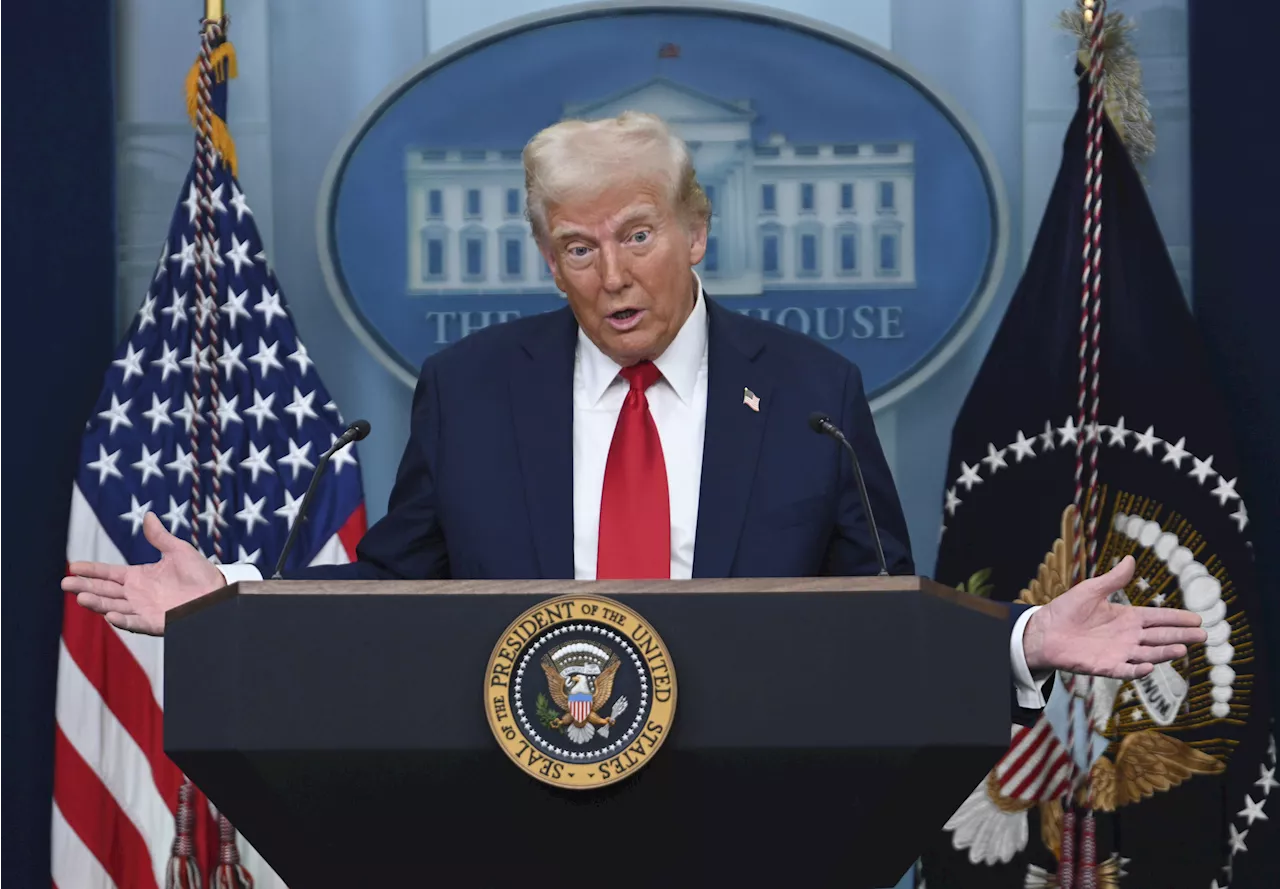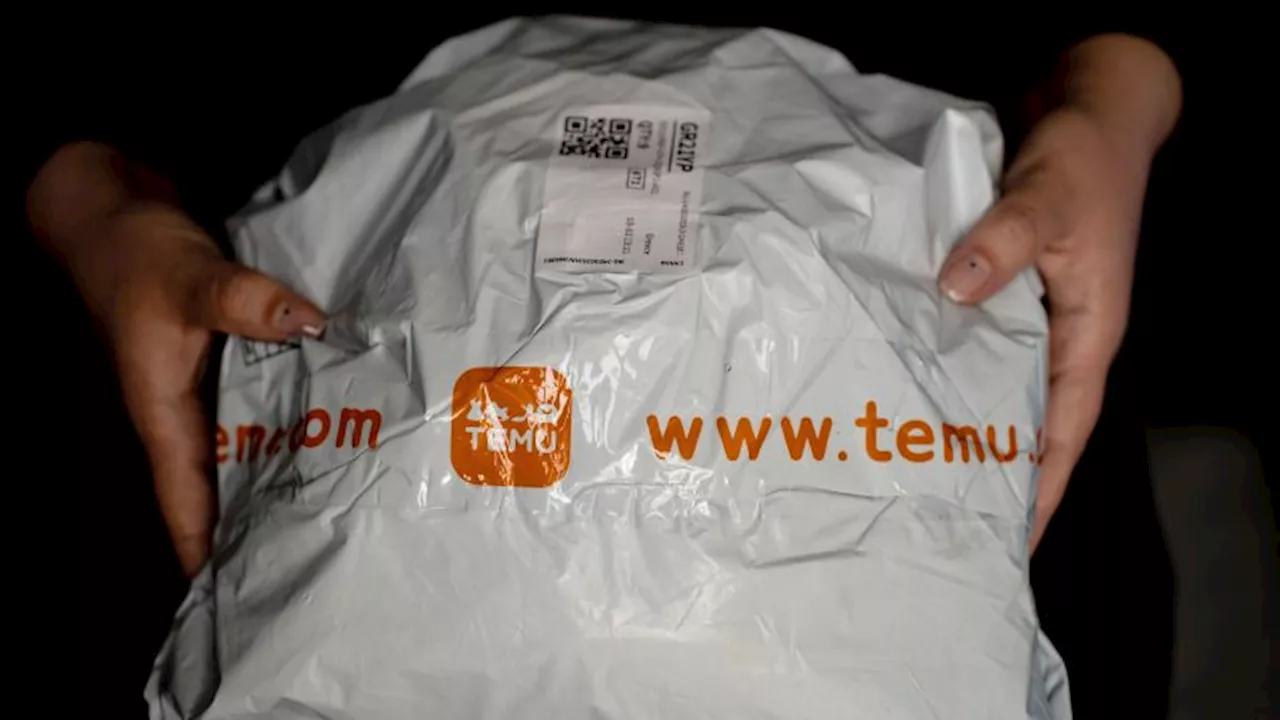The elimination of the de minimis exemption, a long-standing shipping loophole, by former President Trump, could significantly impact the affordability and accessibility of Chinese goods for American consumers.
Americans have developed a fondness for online retailers like Shein, Temu , and AliExpress, largely due to their allure of low prices and swift shipping. However, this dynamic could be significantly disrupted by former President Trump's tariff policies, which have targeted goods from China. Trump's actions reversed a long-standing shipping loophole known as the de minimis exemption.
This provision allowed international exporters to ship packages valued under $800 into the United States without incurring inspection or duty fees. Chinese e-commerce giants have built their empires around this exemption, enabling them to offer a vast array of products, from clothing to household goods, at incredibly low prices. The elimination of this provision by the Trump administration threatens to alter the landscape of online shopping for American consumers. Clark Packard, a research fellow at Cato Trade, warns that inspecting every package would inevitably drive up costs for buyers and slow down the delivery of goods. Furthermore, the US Postal Service has temporarily suspended the acceptance of international parcels from China and Hong Kong, citing unspecified reasons. While this move doesn't affect the flow of letters, it adds to the uncertainty surrounding the future of these popular e-commerce platforms.The de minimis exemption, dating back to the 1930s, was intended to streamline trade and benefit consumers. It allowed buyers to avoid cumbersome customs paperwork and tariffs on small shipments. However, over the past decade, the volume of shipments exceeding one billion annually has sparked concerns about its potential misuse, particularly in relation to the flow of illicit substances like fentanyl.Policymakers, seeking to appear firm against China, have expressed apprehensions over the labor practices employed in China's fast fashion industry. The administration has not explicitly elaborated on the specific reasons for targeting China. The consequences for consumers are likely to be substantial if the de minimis exemption is permanently revoked. Christopher Tang, a professor of global supply chain management at the University of California, Los Angeles, points out that over 80% of total US e-commerce shipments in 2022 were de minimis imports. During the first Trump administration, consumers bore the brunt of tariff costs, potentially leading to a 10% price increase if a similar pattern emerges.The efficient handling of this increased workload by customs officials remains a concern, as it could result in further delays. Experts caution that the implementation would be chaotic. Faced with these challenges, Chinese e-commerce companies may adapt their business models. They could expand their warehousing operations in the US, shipping bulk quantities through customs and then redistributing them domestically, although customers would still be subject to import taxes. The impact on the marketing budgets of companies like Temu and Shein, which heavily rely on advertising on platforms like Google and Meta, is also a significant consideration.
Technology Trade DE MINIMIS TARIFFS CHINA E-COMMERCE SHEIN TEMU ALIEXPRESS SHIPPING
United States Latest News, United States Headlines
Similar News:You can also read news stories similar to this one that we have collected from other news sources.
 Trump tariffs: What do Trump’s executive orders say on tariffs and how would they work?President Donald Trump is using a trio of executive orders to throw the world economy and his own goal of cutting inflation into turmoil.
Trump tariffs: What do Trump’s executive orders say on tariffs and how would they work?President Donald Trump is using a trio of executive orders to throw the world economy and his own goal of cutting inflation into turmoil.
Read more »
 Canada Threatens Retaliatory Tariffs on US Goods if Trump Imposes 25% TariffsCanada is considering retaliatory tariffs on American products if President-elect Donald Trump follows through on his threat to impose 25% tariffs on all Canadian goods.
Canada Threatens Retaliatory Tariffs on US Goods if Trump Imposes 25% TariffsCanada is considering retaliatory tariffs on American products if President-elect Donald Trump follows through on his threat to impose 25% tariffs on all Canadian goods.
Read more »
 Trump Tactical Targeted Tariffs: A Reminder of the Impact of TariffsMarket Overview Analysis by Michael Ashton covering: Starbucks Corporation. Read Michael Ashton's latest article on Investing.com
Trump Tactical Targeted Tariffs: A Reminder of the Impact of TariffsMarket Overview Analysis by Michael Ashton covering: Starbucks Corporation. Read Michael Ashton's latest article on Investing.com
Read more »
 Trump Tariffs LIVE: President Will Impose 25% Tariffs on Mexico and Canada TomorrowPresident Donald Trump is planning to impose 25% tariffs on imports from Canada and Mexico starting tomorrow. Follow Newsweek's live blog for updates.
Trump Tariffs LIVE: President Will Impose 25% Tariffs on Mexico and Canada TomorrowPresident Donald Trump is planning to impose 25% tariffs on imports from Canada and Mexico starting tomorrow. Follow Newsweek's live blog for updates.
Read more »
 Mexico Imposes Retaliatory Tariffs on US After Trump TariffsMexico has responded to President Trump's 25% tariff on the country by imposing its own retaliatory tariffs. President Claudia Sheinbaum Pardo criticized Trump's actions and accused him of ignoring the root causes of the fentanyl crisis in the US. While Mexican products will face a 25% tariff, Chinese goods will be subject to a 10% tariff. The US will also impose 10% tariffs on energy products from Canada.
Mexico Imposes Retaliatory Tariffs on US After Trump TariffsMexico has responded to President Trump's 25% tariff on the country by imposing its own retaliatory tariffs. President Claudia Sheinbaum Pardo criticized Trump's actions and accused him of ignoring the root causes of the fentanyl crisis in the US. While Mexican products will face a 25% tariff, Chinese goods will be subject to a 10% tariff. The US will also impose 10% tariffs on energy products from Canada.
Read more »
 Canada Retaliates Against Trump Tariffs with $155 Billion in Tariffs on US GoodsCanadian Prime Minister Justin Trudeau announced retaliatory tariffs on $155 billion worth of American goods in response to President Donald Trump's imposition of tariffs on goods from Canada, Mexico, and China.
Canada Retaliates Against Trump Tariffs with $155 Billion in Tariffs on US GoodsCanadian Prime Minister Justin Trudeau announced retaliatory tariffs on $155 billion worth of American goods in response to President Donald Trump's imposition of tariffs on goods from Canada, Mexico, and China.
Read more »
